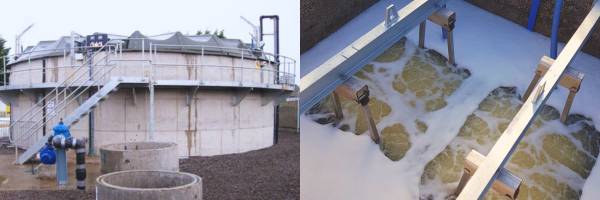Advancements in Wastewater Treatment Technology: Innovations Addressing Global Challenges
With the world rapidly urbanising and populations soaring, the pressure on wastewater treatment systems is growing. Emerging contaminants like pharmaceuticals, microplastics, and industrial by-products pose unique challenges to conventional treatment processes. Moreover, climate change and population-driven water scarcity have intensified the need for sustainable solutions. These solutions need to maximise resource recovery and protect our water sources.
Why New Technologies are Essential in Wastewater Treatment?
The evolution of wastewater treatment technologies is not just about processing water but also addressing pressing global issues.
- Growing Populations and Emerging Contaminants. The chemicals and micro-pollutants generated by expanding urbanisation have made their way into waterways. This makes effective treatment more complex than ever. Traditional treatment methods, designed for simpler contaminants, now struggle with these “emerging contaminants” that require innovative approaches to remove.
- Resource Scarcity and the Need for Recovery. As water resources diminish, more industries and municipalities are prioritising wastewater reclamation. Advanced systems allow for the recovery of water, nutrients, and energy from wastewater. This transforms what was once considered waste into a valuable resource.
Key Technological Innovations in Wastewater Treatment
Artificial intelligence (AI) and machine learning have become integral to optimising the complexities of wastewater treatment. These technologies improve operational efficiency by continuously adjusting treatment parameters, predicting system behaviour, and even alerting operators to potential issues before they occur. This automated decision-making is essential for handling the dynamic nature of wastewater, especially in large-scale operations where conditions can vary dramatically.
Real-time sensors and data analytics tools enable continuous monitoring of water quality and contaminant levels. This technology, which incorporates tools like remote sensing and geospatial imagery, provides operators with real-time data to fine-tune processes, maintain compliance, and manage risks associated with decentralised treatment systems. These systems not only optimise current operations but also provide valuable data for future enhancements.
Industrial wastewater presents unique challenges, given its diversity of contaminants, including heavy metals, oils, and complex chemicals. High-performance membrane processes, such as reverse osmosis and membrane bioreactors (MBR), are effective solutions for treating these complex waste streams. Membrane technology also supports water reclamation, allowing industries to reuse processed water, thus aligning with the goals of resource conservation and regulatory compliance.
Total expenditure (TOTEX) solutions focus on reducing both operational and capital expenditures in municipal water treatment. TOTEX strategies enable water companies to reduce energy consumption, meet stringent regulatory standards, and improve overall operating efficiency. By prioritising proactive maintenance and leveraging digital engineering models, TOTEX solutions also help minimise maintenance costs and enhance collaboration among teams by providing real-time access to critical information. This holistic approach ensures sustainable, cost-effective wastewater management while maximising resource efficiency and compliance with industry demands.
Compact and efficient, SBR systems treat wastewater in a single tank through sequential cycles of aeration, mixing, and settling. This batch process minimises energy requirements and is highly adaptable to variable loads, making it a valuable solution for facilities facing fluctuating wastewater inflows. With automation and remote operation capabilities, SBR systems enhance flexibility and reliability.
Colloide’s Commitment to Sustainable Wastewater Solutions
Colloide works with leading water companies across the UK and Ireland, helping them meet their sustainability and efficiency goals. The company’s approach prioritises cost-effective, sustainable solutions tailored to the unique needs of each client, from reducing energy consumption to futureproofing against regulatory tightening. Through strategic partnerships, Colloide has implemented high-performance technologies for both municipal and industrial water treatment, addressing challenges from sediment removal to biological contamination.

As wastewater treatment continues to evolve, the need for innovation, efficiency, and sustainability will only grow. Whether through AI, advanced filtration, or data-driven insights, the future of wastewater treatment lies in the synergy of sustainable technology and practices.
** All sources referenced in this blog are properly linked within the content. Images used are derived from these sources and are believed to be within the public domain or used under fair use principles. If you believe any material used in this blog infringes on your copyright, please contact us, and we will address the issue promptly. If you would like to be mentioned within this please contact [email protected]




